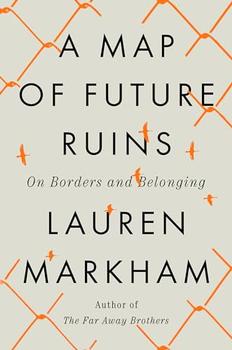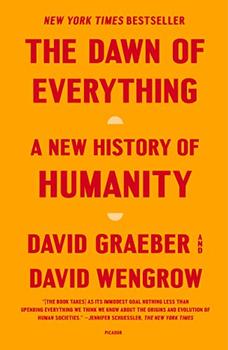Summary | Excerpt | Reviews | Beyond the book | Read-Alikes | Genres & Themes | Author Bio

On Borders and Belonging
by Lauren MarkhamA Map of Future Ruins has two main threads: Lauren Markham's travels to Greece to investigate the roots of her family, who emigrated to the United States three generations earlier, and the burning of the Moria refugee camp on the Greek island of Lesbos in September 2020, with the consequent indictment, arrest and conviction of six young Afghans. Through these subjects, Markham explores the refugee crisis in Europe from one of its hot spots.
Greece is, together with Italy, the main point of entry for immigrants who, driven by war, hunger or oppression, head for Europe. It is also considered the cradle of democracy, the proud foundation on which Western culture and its values of justice and equality are based. But, as Markham reports, since the devastating effects of the 2008 crisis the Aegean country has been reeling under the weight of its myths, unable to live up to its own ideal. According to Markham, the hundreds of thousands of refugees who began arriving in waves since 2015 have become scapegoats for Greece's suffering. On a smaller and symbolic scale, the so-called "Moria 6" have become scapegoats for the camp's burning, subjected to an unfair trial with no substantial evidence.
Markham addresses the judicial process in the third part of the book, which also delves into other cruel aspects of the management of the refugee crisis, such as threats to activists and pushbacks—illegal expulsions of refugees. Earlier, in the first part, she traces the political, cultural and geographical context that explains the matchstick path leading to the fire of Moria. Markham deploys her erudition and extensive research as she outlines the history of Western culture and its mythical roots, and she gives the reader a glimpse of her expertise—she has been reporting for years on migration issues, especially in America.
But in this work Markham is not only an observer: she becomes a character. In the second part, she describes her travels through Greece and the places where her grandmother lived. Like Moria's immigrants, Markham's ancestors fled their homeland in search of a better life. And, also like Moria's immigrants, Markham is now drawn to Greece, the persistent destination of their particular odysseys.
Her travels to research her family history and to report on the refugee crisis began in 2019. Moria's fire a year later became the link between these two stories she wanted to tell, the knot that ties together her large and perhaps overly ambitious project, in which she investigates the mechanisms of myth-making, belonging, exclusion, borders and whiteness. By interweaving all these journeys, her story ceases to be the simple narration of a specific case and becomes a general commentary on migration, as Moria's story is "about the criminalization of contemporary migration, yes, but also about the valorization of past times and migrations."
In this way, chronicle, reportage and autobiography merge, creating a cohesive work that, nevertheless, sometimes becomes reiterative in its main ideas. Markham develops these throughout the chapters, seamlessly navigating between present, past and future. As she writes, the "truest stories move like a mosaic, not a line."
To compose this mosaic, the journalist uses evocative language. Markham's voice is clear and emphatic in her descriptions and opinions, which she doesn't mask. Her vocabulary is rife with mythical terms, especially in her references to Moria, defined as an underworld, a limbo or a purgatory. In this place, Ali, Hassam and the other four convicted—whose names the reader never gets to know—see their hopes stifled. What they thought was a journey to freedom becomes a nightmare with no return: "Ali had lived in Greece long enough to understand that the image Europe projected to the world—a place of strength, where freedom and justice prospered—was, at least for refugees like him, a sham."
This situation highlights the injustice of the refugee crisis management, as well as the timeliness and relevance of Markham's work. The seasoned journalist believes that "by influencing the way events are understood, our stories shape the policies that are made." A Map of Future Ruins is an attempt to change the way contemporary immigration stories are told by revising falsehoods, going beyond mere data and giving voice to the protagonists of these situations. It is the first step of a very long journey.
![]() This review
first ran in the March 6, 2024
issue of BookBrowse Recommends.
This review
first ran in the March 6, 2024
issue of BookBrowse Recommends.

If you liked A Map of Future Ruins, try these:

by David Graeber, David Wengrow
Published 2023
A dramatically new understanding of human history, challenging our most fundamental assumptions about social evolution―from the development of agriculture and cities to the origins of the state, democracy, and inequality―and revealing new possibilities for human emancipation.

Somewhere in the Unknown World
by Kao Kalia Yang
Published 2020
From "an exceptional storyteller," Somewhere in the Unknown World is a collection of powerful stories of refugees who have found new lives in Minnesota's Twin Cities, told by the award-winning author of The Latehomecomer and The Song Poet.




If every country had to write a book about elephants...
Click Here to find out who said this, as well as discovering other famous literary quotes!
Your guide toexceptional books
BookBrowse seeks out and recommends the best in contemporary fiction and nonfiction—books that not only engage and entertain but also deepen our understanding of ourselves and the world around us.